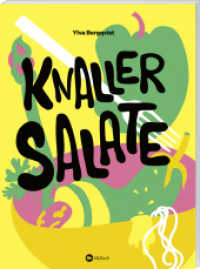- ホーム
- > 洋書
- > 英文書
- > Politics / International Relations
基本説明
New in paperback. Hardcover was published in 2004. Co-Winner of the 2005 W. E. B. Du Bois Book Award, National Conference of Black Political Scientists. On the way public opinion and ideologies are formed at the grassroots level among African American.
Full Description
What is the best way to understand black political ideology? Just listen to the everyday talk that emerges in public spaces, suggests Melissa Harris-Lacewell. And listen this author has--to black college students talking about the Million Man March and welfare, to Southern, black Baptists discussing homosexuality in the church, to black men in a barbershop early on a Saturday morning, to the voices of hip-hop music and Black Entertainment Television. Using statistical, experimental, and ethnographic methods Barbershops, Bibles, and B.E.T offers a new perspective on the way public opinion and ideologies are formed at the grassroots level. The book makes an important contribution to our understanding of black politics by shifting the focus from the influence of national elites in opinion formation to the influence of local elites and people in daily interaction with each other.
Arguing that African Americans use community dialogue to jointly develop understandings of their collective political interests, Harris-Lacewell identifies four political ideologies that constitute the framework of contemporary black political thought: Black Nationalism, Black Feminism, Black Conservatism and Liberal Integrationism. These ideologies, the book posits, help African Americans to understand persistent social and economic inequality, to identify the significance of race in that inequality, and to devise strategies for overcoming it.
Contents
List of Tables ix List of Figures xi Acknowledgments xiii Introduction xvii Chapter One Everyday Talk and Ideology 1 Chapter Two Ideology in Action: The Promise of Orange Grove 35 Chapter Three Black Talk, Black Thought: Evidence in National Data 79 Chapter Four Policing Conservatives, Believing Feminists: Reactions to Unpopular Ideologies in Everyday Black Talk 110 Appendix 4.1 153 Appendix 4.2 157 Chapter Five Truth and Soul: Black Talk in the Barbershop Written with Quincy T. Mills 162 Chapter Six Speaking to, Speaking for, Speaking with: Black Ideological Elites 204 Chapter Seven Everyday Black Talk at the Turn of the Twenty-first Century 250 Notes 265 Bibliography 287 Index 313







